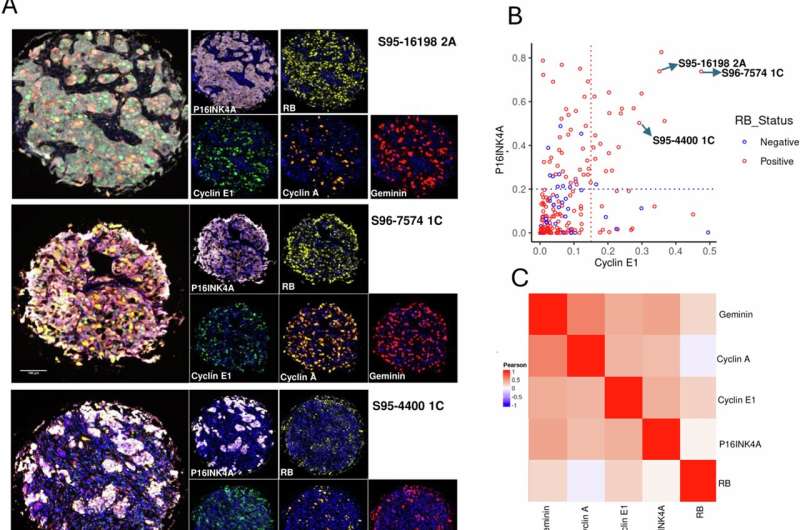FDA-approved CDK4/6 inhibitors include abemaciclib (brand name Verzenio), ribociclib (brand name Kisqali) and palbociclib (brand name Ibrance), all of which can be used in combination with hormone therapy to treat hormone receptor-positive breast cancers. However, the disease can become resistant to those treatments, often due to the activation of CDK2.
The preclinical research study led by investigators at Roswell Park and the University of California Santa Cruz, in collaboration with Incyclix Bio Inc., revealed that some tumors are exceptionally dependent on CDK2 and are vulnerable to a CDK2 inhibitor called INX-315, a drug candidate developed by Incyclix Bio. The research team found that several key biomarkers can predict sensitivity to CDK2 in preclinical models, and those biomarkers could help identify patients who are most likely to respond to CKD2-targeted therapies.

